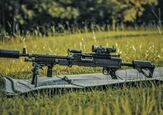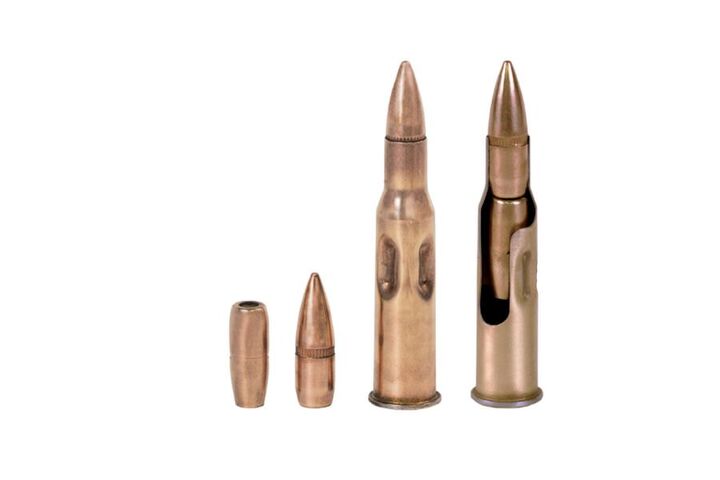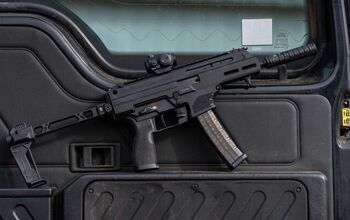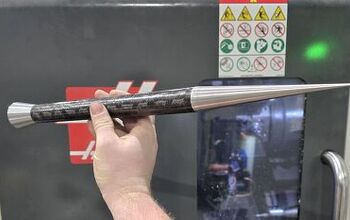Russian Tekhkrim’s Duplex 7.62x54 Ammunition

Tekhkrim, a Russian firearms and ammunition manufacturer, has announced the start of serial production for new 7.62x54 cartridges. While this concept is not new, it has been revisited throughout history for various purposes. As the battlefield evolves, new solutions are needed to address emerging threats. While not explicitly stating that this is to counter drones, the description, design, and short range imply that this duplex ammunition has been developed to counter fast-moving drones. These cartridges are designed for use in any small arms chambered for the 7.62x54 caliber, aiming to increase projectile density at distances of up to 350 meters.
The new duplex ammunition features a bimetallic jacket with a mild steel core. The steel cartridge case is copper-plated. The first projectile weighs 123 grains (8 grams), while the second projectile weighs 107 grains (7 grams), delivering a velocity of 2132 fps (650 m/s). The advertised dispersion measurements are 2.3-9.8 inches (60/250mm) at 100 meters, 11-16.5 inches (280/420mm) at 200 meters, and 13.7-21.6 inches (350/550mm) at 300 meters.
The design is highly likely intended for counter-unmanned Aircraft Systems (C-UAS) and is effective at ranges of up to 350 meters. Using two lighter-weight projectiles with lower muzzle velocities will lead to decreased terminal ballistics, but it will increase hit probability.
Russian systems that have been used for C-UAS include the PKT machine gun, which can fire up to 800 rounds per minute. Recently, another option has emerged: the GShG-7.62 minigun, which can fire up to 6,000 rounds per minute. For infantry applications, standard PKM/PKP general-purpose machine guns can be employed for both traditional and C-UAS use. Adjusting the gas setting to position three will help increase the fire rate, enhance overall fire volume, and improve hit probability.
If it hasn't already, the new cartridge will likely be tested in the Russo-Ukrainian War for C-UAS. However, no information is currently available regarding whether it has already been tested or fielded. I previously wrote an article about a recent Russian patent for the duplex 7.62x54 cartridge here.

Lynndon Schooler is an open-source weapons intelligence professional with a background as an infantryman in the US Army. His experience includes working as a gunsmith and production manager in firearm manufacturing, as well as serving as an armorer, consultant, and instructor in nonstandard weapons. His articles have been published in Small Arms Review and the Small Arms Defence Journal. https://www.instagram.com/lynndons
More by Lynndon Schooler














![[SHOT 2025] Chiappa Goes Full Space Cowboy](https://cdn-fastly.thefirearmblog.com/media/2025/01/24/01471/shot-2025-chiappa-goes-full-space-cowboy.jpg?size=350x220)
![[SHOT 2025] Glock Debuts Aimpoint Combo Pistols, New Pistol Light](https://cdn-fastly.thefirearmblog.com/media/2025/01/22/00501/shot-2025-glock-debuts-aimpoint-combo-pistols-new-pistol-light.jpg?size=350x220)





![[SHOT 2025] What Do You Want to See?](https://cdn-fastly.thefirearmblog.com/media/2025/01/13/16081/shot-2025-what-do-you-want-to-see.jpg?size=350x220)



Comments
Join the conversation
Those ribs on the case look like a spot for case rupture. I feel you better stick with buckshot or Gatling with tracer.
a very logical develpment, since GPMG and thier calibers are widespread in
russian, and of course the US army , why not configure a ammuntion which can
deal specifically with drones. The next most logical step would be make a clone
of this ammo type in the standard 12.7 x 108 .50 caliber round standard in
Russia .